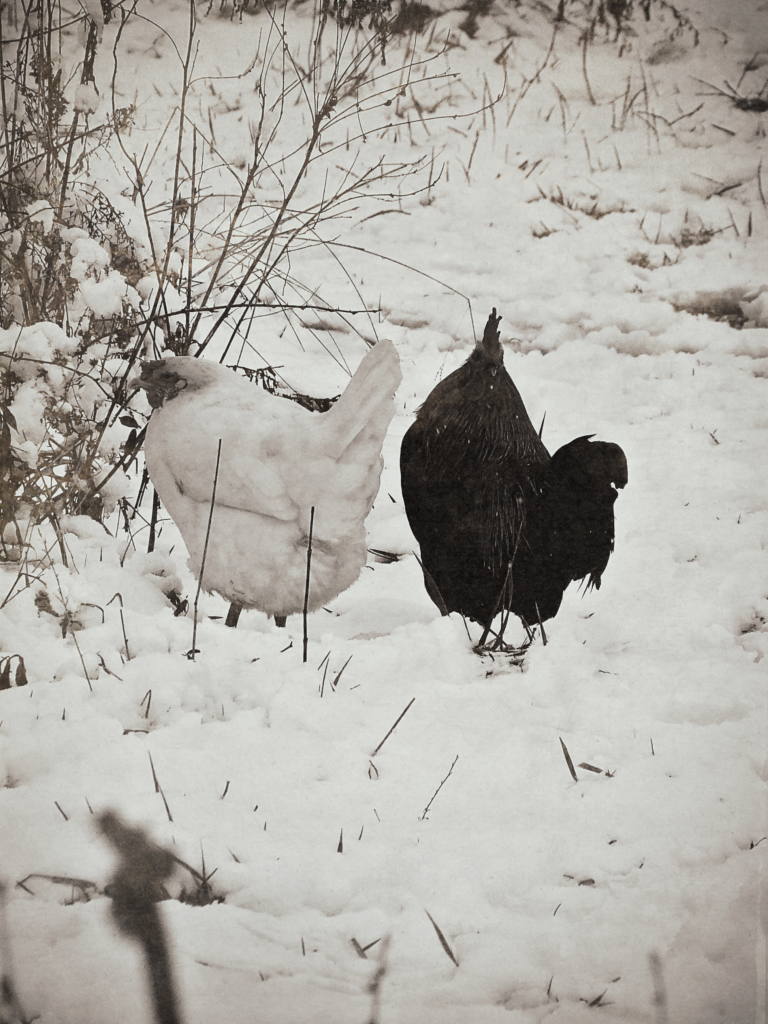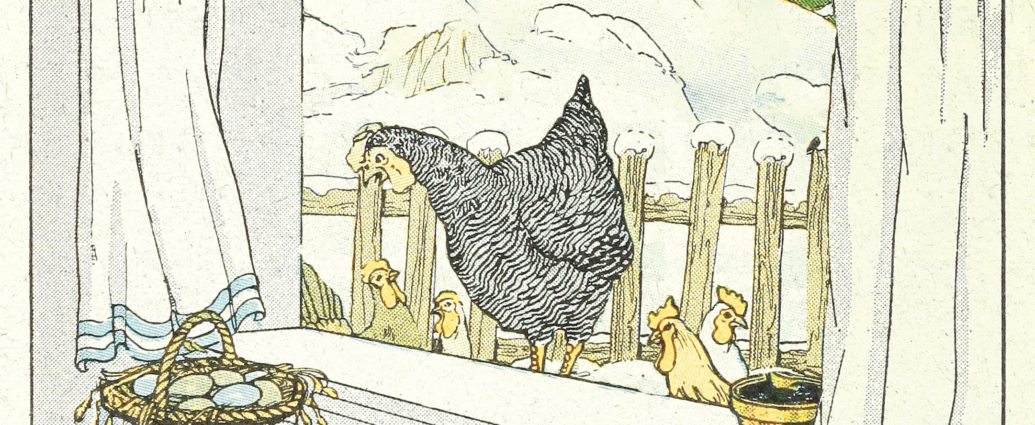WE FEED our fowls as early as possible in the morning. Their breakfast always consists of a mixture of grains, and it may be made up of wheat, oats, rye, barley, buckwheat, or any other small grain. Not so very much is fed, and it is all thrown into a deep litter composed of straw, cut clover, or any other equally loose material. Dinner is fed in the same manner as breakfast, and consists of a few handfuls of oats to each pen. By feeding grain scattered in litter for both these meals, the birds are compelled to take plenty of exercise, and keep busy and contented nearly all day scratching and hunting in the litter.

A mash is fed in the evening. It is composed of two parts each of cracked corn and wheat bran, and one part each of middlings and ground beef scrap. The fowls are given about all of this mash that they want to eat, as supper has to last them much longer than any other meal. It is fed early enough in the afternoon to allow the birds ample time in which to partake of all the food and water they want before it is time for them to go to roost.
Clean, fresh water that has been slightly warmed, is taken around to each of the various vessels three times a day, immediately after each meal. It is not merely added to that already in the vessel, but all the old water is thrown away and replaced entirely with fresh.
A head of cabbage or a big beet is fed to each pen in the middle of the white day. A good plan is to suspend it in the air so that the fowls will have to jump just a few inches in order to get at it.
Chopped potatoes or turnips may be fed instead of cabbage or beets if they are more easily available. If it is very difficult to secure these vegetables, clover or alfalfa meal may be substituted and fed in the mash with excellent results, although it is always well to give an occasional feed of vegetables by way of variety.
Article written by : R. B. Sando. Source: Country Life in American January 1909

